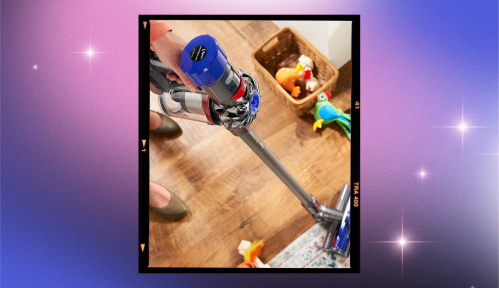Our editors independently select these products. Making a purchase through our links may earn Well+Good a commission
Imposter syndrome describes a sense of self-doubt in your skills that makes you feel, in short, like a fraud or even a failure, despite accolades and positive reinforcement you may well be receiving. “The core reason that people experience imposter syndrome is really due to our unrealistic, unsustainable notions about what it means to be competent,” says Valerie Young, EdD, imposter syndrome expert and author of The Secret Thoughts of Successful Women: Why Capable People Suffer from the Impostor Syndrome and How to Thrive in Spite of It.
Experts in This Article
Valerie Young, EdD, is the author of “The Secret Thoughts of Successful Women: Why Capable People Suffer from the Impostor Syndrome and How to Thrive in Spite of It.” Her work focuses on helping people overcome imposter syndrome.
And while anyone can experience it, Dr. Young developed five core types of imposter syndrome to describe the different ways it tends to show up: the perfectionist, the expert, the soloist, the natural genius, and the “superperson.” Each of these types of imposter syndrome includes their own set of challenges, though Dr. Young notes that in general, imposter syndrome most frequently affects those who skew higher achieving and who have difficulty accepting their accomplishments.
Now for the curveball: Dr. Young says conditions of pandemic life may be worsening the effects of imposter syndrome for many folks. Below, get a breakdown of the different types of imposter syndrome to get a sense of how you fit in, and how pandemic conditions may be impacting you.
The 5 types of imposter syndrome, and how each is showing up under pandemic conditions.
1. The Perfectionist
The basics: The main focus of the perfectionist is on how something is done and how it turns out. If there’s even a minor flaw, they view the whole endeavor as a failure.
Pandemic problems: Dr. Young says that perfectionists may hold themselves to “even higher unrealistic standards of perfection” during the pandemic, depending on the specific situation. “When you’re working virtually, it’s hard to gauge how other people around you are doing because you don’t have those same ongoing connections,” she says. Operating in the dark can be frustrating for perfectionists, who prefer to know every available detail.
To improve the conditions, Dr. Young suggests perfectionists “hit the pause button and become aware of the conversation going on in your head.” Furthermore, she says, try to take the viewpoint of someone who doesn’t struggle with imposter syndrome. That is, not everything can be perfect and not everything needs to be perfect. “You could be slowing the whole team down by dotting every I and crossing ever T in things that could just be good enough,” she says.
2. The Expert
The basics: The expert focuses on what they know or can do. Because they expect themselves to know everything, they can feel ashamed when they don’t.
Pandemic problems: The pandemic has required plenty of people who find themselves suddenly working remotely to become their own IT expert. And, if you’re not really a tech person, that can be frustrating. “Recognize that you can’t know everything in the beginning, when you’re starting out with something, or ever,” Dr. Young says. For this type of imposter syndrome, she recommends looking out for negative self-talk and doing your best to tweak it. “There’s a difference between saying, ‘I’m so stupid’ and ‘I feel so stupid in this moment,’” Dr. Young says. “We all feel stupid from time to time, and that’s okay.”
3. The Soloist
The basics: This type of imposter syndrome is characterized by someone focused on who completes a task, and needs for it to be them and only them. Because the soloist thinks they need to do everything alone, they can feel like they’ve failed if they need to ask for help.
Pandemic problems: Of all the types of imposter syndrome, Dr. Young says this one is probably the happiest to be working virtually. Still, work projects can and do happen, and collaboration is often necessary for being able to get things done. “Keep in mind that you could be taking longer to complete something by insisting in your head that you have to figure it out yourself,” Dr. Young says.
4. The Natural Genius
The basics: The natural genius measures success by how quickly and easily they get something done. If they need to work at a new skill, they feel like a failure, Dr. Young says.
Pandemic problems: Learning to work under new conditions has been “a huge learning curve for everyone,” Dr. Young says. And having to master different platforms, apps, and databases, can be particularly frustrating for natural geniuses, because, as she says, “they expect to hit the ground running.” If you think you may fall into the natural genius type of imposter syndrome, she recommends reminding yourself that the more you do of anything, the better you’ll get at it.
5. The “Superperson”
The basics: How many roles this person can juggle matters to them. Falling short on any front makes them feel badly because they expect that they can and should be able to handle everything.
Pandemic problems: Superpeople are “probably the most impacted” by the pandemic, especially those who are parents, Dr. Young says. “If you’re measuring your success based on excelling not just on work life but as a parent, partner, and member of your extended family, then you’re going to fall short.
To deal, she recommends working on self-compassion, lowering your standards, being aware of the comparison trap that often accompanies scrolling on social media. “Talk to your friends, let your house go a little bit, and give yourself a break,” she says. “Tell yourself that you’re doing the best you can.”
Oh hi! You look like someone who loves free workouts, discounts for cult-fave wellness brands, and exclusive Well+Good content. Sign up for Well+, our online community of wellness insiders, and unlock your rewards instantly.
Sign Up for Our Daily Newsletter
Get all the latest in wellness, trends, food, fitness, beauty, and more delivered right to your inbox.
Got it, you've been added to our email list.











